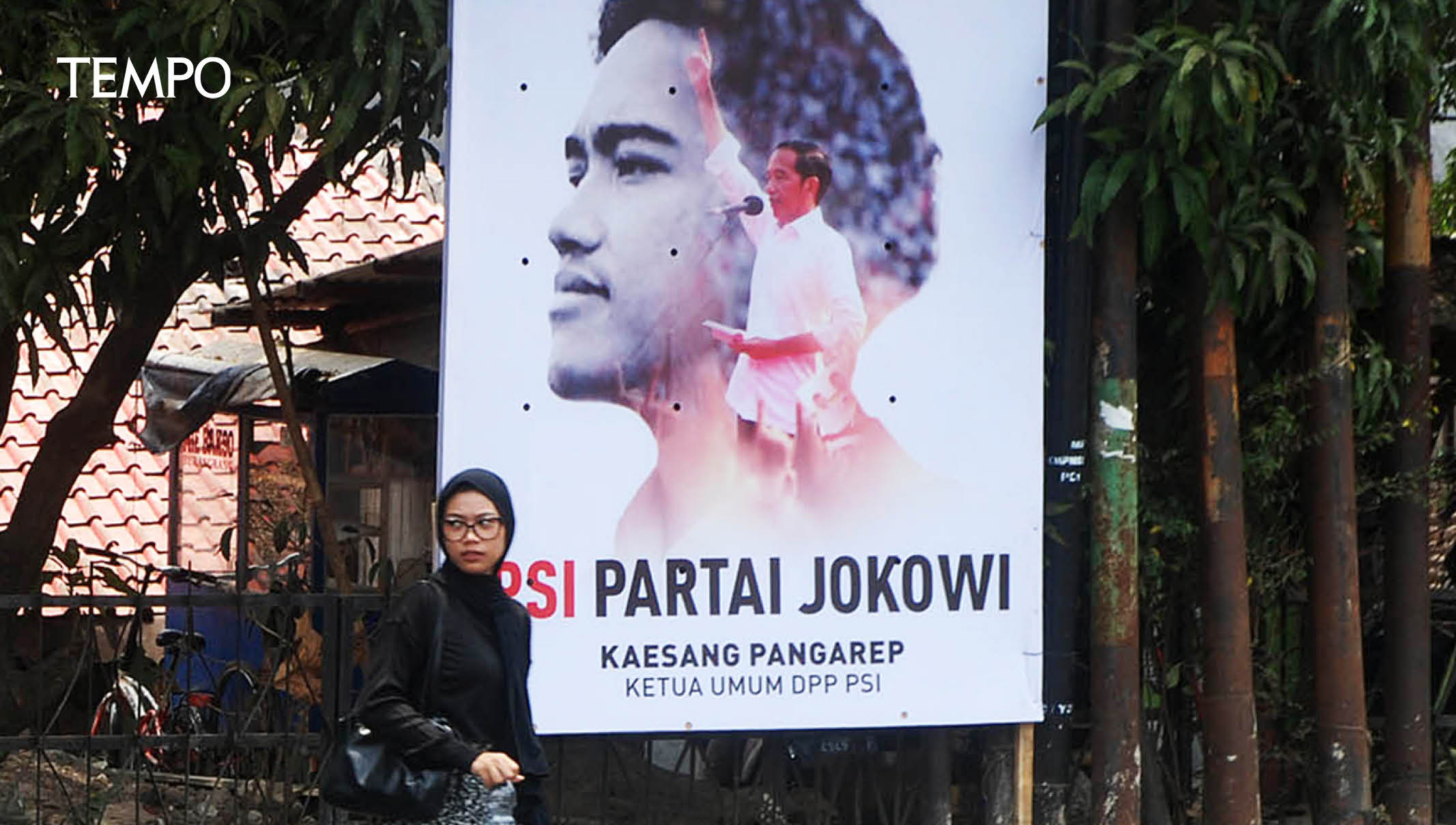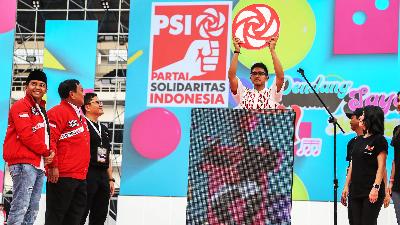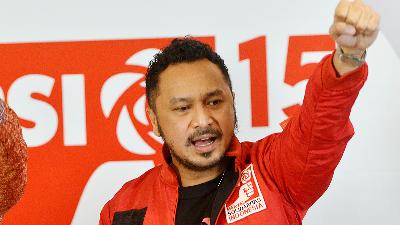A Dreadful Political Year
Monday, January 1, 2024
The Jokowi government slayed democracy democratically.
arsip tempo : 174594614924.

THE year 2023 was an annus horribilis in Indonesian history. A president used any means possible to remain in power: beginning with a plan to postpone the general elections, making efforts to extend his term of duty, right up to tactics manipulating the law to pave the way for his son to participate in the elections. This penchant for power was aided and abetted by opportunistic power-hungry judges and politicians.
As can be observed in our end of year special edition kaleidoscope, events that occurred in 2023 showed a very real threat for democracy. Authoritarianism made a come-back wrapped up as democracy legitimized by majority rule. Such electoral authoritarianism as defined by Andreas Schedler, political analyst from the Central European University, is what is currently happening in Indonesia.
General elections and political parties are simply the procedural requirements of a democracy. The general election is not an automatic mechanism to filter the country’s leaders nor curb their power. The new autocracy side-stepped the important elements of democratic constitutionalism: supremacy of the law, political accountability, bureaucratic integrity, and public consensus.
These elements were in place throughout the second term of President Joko Widodo’s reign. He cut constitutional corners that curbed his power and accumulated political clout on behalf of the coalition backing him. He occupied the bureaucracy to support political interests and ignored the voices of the many when he drew up new policies. The Jokowi government slayed demoracy democratically.
A quarter of a century into Reformasi looks as if it did not succeed in freeing the public from leaders like Jokowi. The 1998 Reformasi only managed to give birth to a persona and encouraged the rise of the cult of an individual, and completely forgot to execute political education—a mechanism that could have safeguarded common sense and public criticism.
Electoral authoritarianism was also supported by political populism. The people were soft-soaped—if not downright manipulated—by image building and instantaneous policies such as the distribution of social assistances and basic goods. In face of a difficult economy and ever-shrinking space for civil society, the general public was forced to remain pragmatic and simply ‘accept’ their populist leader.
Political parties were ensnared in the same pragmatism. Impeding the emergence of new leaders through a tight presidential threshold, they diminished themselves into little more than skivvies for garnering votes. An inter-party coalition was established purely to save their own skins—with no consideration for similarity of viewpoint. Let alone ideology.
Political parties associated themselves with the presidential candidate championed by polling institutions. The strategy was deemed a snap for increasing the chances of grabbing votes for the party in the legislative elections—something known as the coattail effect. All the political parties executed this strategy, including the Indonesian Solidarity Party (PSI)—the young party we scrutinized in this edition’s special report.
Established nine years ago, the PSI was a stillborn baby right from its conception. By its capital investor, the party was founded and nurtured to later be sold to ‘investors’ much like a start-up company. Despite brandishing the name ‘solidarity’ and the emblem of a red rose—the symbol of labor solidarity in the United States of America in 1886 and democratic socialism in Europe—the PSI has no concept except for increasing ‘valuation’ so the party can increase profits for its initial investor.
It comes as no surprise then that the PSI, which originally denounced dynasty politics, has now allied itself with Jokowi. The party, which in 2019 decried Prabowo Subianto vehemently as a figure with a dark past, is now firmly in the camp of the Gerindra Party presidential candidate.
This principle of “so long as we get our bellies filled” is also upheld by activists from 1998, another piece in the mosaic of post-Reformasi political pragmatism. The very persons who were abducted and tortured for wanting to reinstate democracy are now in the same wagon as Prabowo Subianto.
Hence, whomever is the winner of the 2024 General Election, these chimpanzees of democracy will shamelessly jump from one tree of power to another to sup of that power. To date, we can only prep ourselves: 2024 and the period after will surely be an annus horribilis, and one that will be nauseating.











